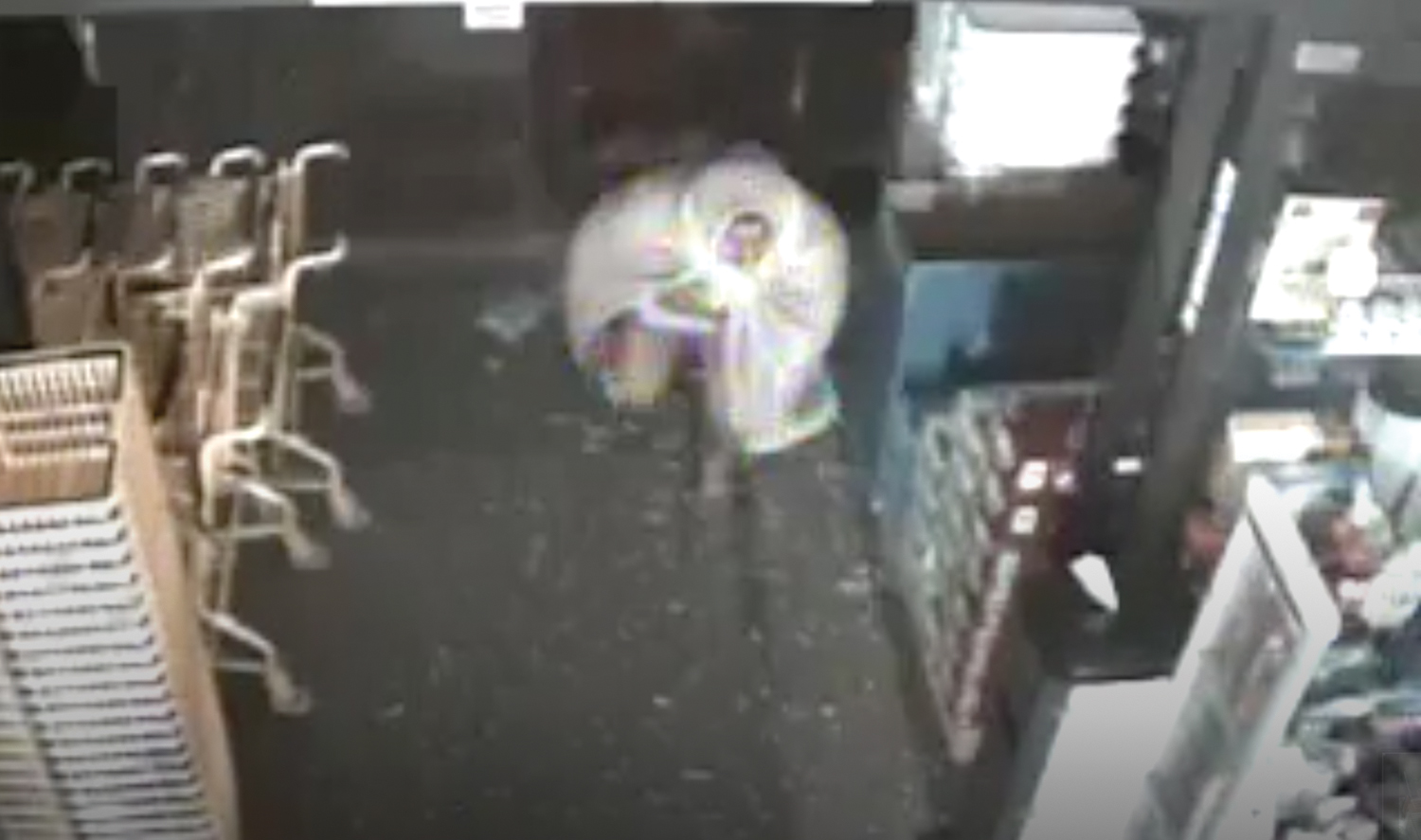National anthem more than just a song before a game
Published 9:01 pm Tuesday, July 2, 2024
Every once in a while, okay, maybe every few days, I can’t help getting on the internet and typing in Toby Keith’s Courtesy of the Red, White and Blue.
The song isn’t just a good song, it’s very powerful and stirs emotions.
In the song he sings about his father serving in the Army where he lost his right eye but he flew a flag in the yard until the day that he died. Keith said his father wanted his mother, brother, sister and me to grow up living happy in the land of the free.
Foreign countries are amazed and envious of how much patriotism Americans show for their country and the love they have for the flag.
Now, there have been the occasional flag burnings but it’s not something that sits well with Americans. Just ask Rick Monday who was playing center field for the Los Angeles Dodgers in 1965 when a person ran onto the field and was preparing to set the American flag on fire.
Monday swooped in and grabbed the flag. He didn’t really think of himself as being patriotic but it seems to be something instilled in us.
We have gone through the kneeling during the National Anthem but those people do not have an understanding of what that song really means as well as the American flag. There are other ways to get your point across.
We hear the national anthem played before each ball game we attend. The tradition started during the early era of professional baseball because there weren’t stadiums that kept people back from the playing field. Often it was just a rope and fans could become rowdy before the start of the game.
The playing of the national anthem stopped the rumblings and fans stopped to honor their country.
Most everyone has heard the Star-Spangled Banner and may even know it by heart. We know the words were written by Francis Scott Key, but the story goes even deeper and the understanding of how the song came about and the profound impact it creates.
After America had won its independence from England, the British decided to regroup and make another run at taking back the colonies which gave us the War of 1812.
The conflict with Britain became vicious. Both sides had accumulated prisoners and the American government initiated a move to negotiate the exchange and release of these prisoners.
The American prisoners were on ships about 1,000 yards offshore. The American government sent a 35-year-old lawyer named Francis Scott Key to negotiate the terms of the exchange. On the agreed date, Francis Key went out in a row boat to a ship and negotiated with British officials and they agreed to release the men on a one-for-one basis.
Excited that he had been successful in the negotiations, Key went down below where the dozens of prisoners were chained in cages. He told them he had news for them. He said tonight you are free. He said you’ll be taken out of your chains and off this boat.
But when he went back up on deck the admiral of the ship said there was a slight problem. The admiral said they would still honor the exchange of prisoners but it would be merely academic after tonight. Francis Scott Key asked, “What do you mean?”
“Mr. Key, tonight we have issued an ultimatum to the people in the colonies. Your people will either capitulate and either lay down the colors of that flag you think so much of, or, you see that fort over there, Fort McHenry? We’re going to remove it from the face of the earth.”
Key asked how they were going to do that and the admiral explained, “If you will, scan the horizon of the sea.” As Key looked he could see hundreds of little dots. The admiral explained, “That’s the entire British war fleet.”
The admiral said all of the gunpowder and all the armament was being called upon to demolish that fort. “The fleet will be here in about two and a half hours. The war is over. These men will be free anyway.”
Key told the admiral that you can’t shell that fort. That’s a large fort and it’s full of women and children. It’s predominantly not a military fort.
The admiral said not to worry because they have left them a way out of the situation. Key asked what way and the admiral said, “You see that flag way up on the rampart? We have told them if they lower that flag, the shelling will stop immediately and we’ll know they have surrendered and you’ll now be under British rule.”
Key went down and told the men what was about to happen. They asked how many ships and he said hundreds. Key went back on top and told the men he would shout down what was happening.
As twilight began to fall and a haze rose over the ocean, the British war fleet unleashed its bombardment. Key said the there were so many guns that the sound was deafening. The sky was now dark but it was suddenly lit. And down below all Key could hear was the men asking him to tell them where the flag was. What is happening with the flag. Is the flag still flying over the rampart?
(A rampart is a defensive wall of a castle, walled city or fort with a broad top with a walkway).
The shelling continued for four hours and every time a bomb exploded they could see the red glare. Key would keep reporting to the men and say, “The flag is still up.”
The admiral came to Key and said your people are insane. What’s the matter with them? Don’t they understand this is an impossible situation?
Key said he remembered that George Washington once said, “That the thing that sets the American Christian apart from all the other people in the world is that he will die on his feet before he will live on his knees.”
The admiral said we have instructed the ships to focus on the rampart and take that flag down. He said there was something they didn’t understand. Their recognizance has told them that the flag has been hit directly again and again and again and yet it’s still flying.
He then said that every gun was going to fire on that rampart for the next three hours. Key said the barrage was unmerciful. All Key could hear was the men down below praying, “God keep that flag flying where we last saw it.”
Sunrise came and there was a heavy mist hanging over the land. The rampart was tall enough and there stood the flag completely nondescript in shreds. The flag pole itself was at a crazy angle but the flag was still at the top.
Key went ashore and went to the fort to see what had happened and he discovered that the flag had suffered repetitious direct hit after direct hit. But the men there who knew what it meant for that flag to be on the ground, knowing all British guns were aimed at it, walked over and held it up themselves.
When they were killed, their bodies were removed and others took their place. Key said what held that pole up in its peculiar way were the dead bodies of the patriots. Key — an amateur poet — was so moved with emotion that he penned the words for the Star-Spangled Banner.
“The Star-Spangled Banner” was first recognized for official use by the U.S. Navy in 1889. In 1931, Congress passed a joint resolution making the song the official national anthem of the United States and President Herbert Hoover signed it into law and it was codified.
Keith — who died of stomach cancer in February — wrote in his song:
“American girls and American guys
We’ll always stand up and salute
We’ll always recognize
When we see Old Glory flying
There’s a lot of men dead
So we can sleep in peace at night when we lay down our head.”
From the Revolutionary War until 2024, thank you American soldiers for defending our freedom.
We salute you and the flag that represents your fight as it flies over the land of the free and the home of the brave.
———
Jim Walker is sports editor of The Ironton Tribune. This story was first published for July 4, 2023.





